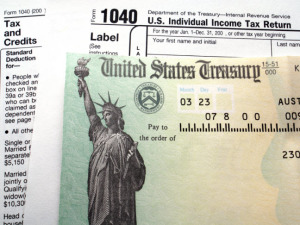Dear Liz: My wife and I retired in 2019 and ran into IRMAA — Medicare’s income-related monthly adjustment amount, which increased our monthly premiums. I thought I’d done such a good job budgeting for retirement but missed this. A lot of couples have their best income years at the end of their career and then get blindsided by the cost of Medicare and the adjustment based on their previous income. I will say that the folks at the local Social Security office were very helpful, and they supplied us with forms for an exception based on our new income.
Answer: IRMAA can boost premiums substantially for singles with yearly income above $87,000 and married couples with incomes above $174,000. The increases for Medicare Part B, which covers doctor’s visits, range from $57.80 to $347 a person per month. The surcharges for Part D, which pays for prescription drugs, start at $12.20 and top out at $76.40 a person per month.
The adjustments are based on your income two years prior (so 2018 income determines 2020 premiums). You can appeal the increase if you’ve experienced a life-changing event. Retirement with a subsequent drop in income can be one such event. So can other work stoppages or reductions, marriage or divorce, the death of a spouse, loss of income-producing property or loss of pension income.
Even without IRMAA, healthcare costs can catch many newly retired people by surprise, especially if they previously had generous employer-subsidized coverage. Medicare doesn’t cover everything; it has deductibles and co-pays in addition to premiums, and excludes most vision, hearing and dental expenses.
How much you pay out of pocket depends on your health, where you live and what supplemental coverage you buy. A study by Vanguard and Mercer Health and Benefits estimated that a typical 65-year-old woman in 2018 could expect to pay $5,200, but her costs could range from $3,000 to $26,200. (The researchers say a 65-year-old man’s costs are typically about 3% lower.)
 Today’s top story: Haven’t filed a tax return lately? You can still get a refund. Also in the news: The ultimate travel tip for couples, a new tax form that may help simplify filing for seniors, and what Trump’s budget plan would mean for you student loan debt.
Today’s top story: Haven’t filed a tax return lately? You can still get a refund. Also in the news: The ultimate travel tip for couples, a new tax form that may help simplify filing for seniors, and what Trump’s budget plan would mean for you student loan debt. Today’s top story: How to navigate your most dangerous decade. Also in the news: 5 questions to ask before you share a credit card, how to use your tax refund to polish your credit, and how to save on your cell phone bill without a family plan.
Today’s top story: How to navigate your most dangerous decade. Also in the news: 5 questions to ask before you share a credit card, how to use your tax refund to polish your credit, and how to save on your cell phone bill without a family plan. Today’s top story: Be your financial Valentine. Also in the news: 44% of adults admit to keeping money secrets from a partner, most consumers have already broken their resolutions, and how to reset your finances after a breakup.
Today’s top story: Be your financial Valentine. Also in the news: 44% of adults admit to keeping money secrets from a partner, most consumers have already broken their resolutions, and how to reset your finances after a breakup. Today’s top story: Should your student loans and your spouse’s get hitched? Also in the news: Investing vs paying student loans, the blunt truth about medical expenses, marijuana, and your tax returns, and how to figure out your finances when you’re single.
Today’s top story: Should your student loans and your spouse’s get hitched? Also in the news: Investing vs paying student loans, the blunt truth about medical expenses, marijuana, and your tax returns, and how to figure out your finances when you’re single.